Polish family murdered for helping Jews may be beatified

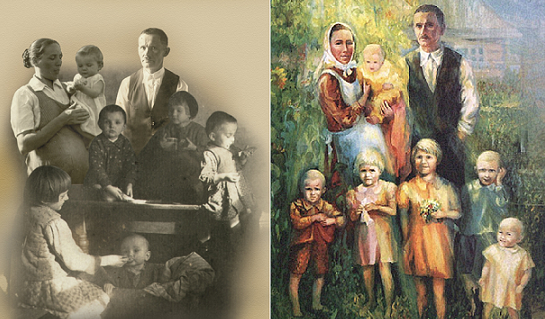
The Ulma family, przemyska.pl
Murdered 77 years ago, called the Samaritans from Markowa, today they are candidates for altars. It is about the Polish Ulma family, who died on March 24, 1944 at the hands of the Germans for hiding eight Jews on their farm. The beatification process of Józef and Wiktoria Ulma and their seven children, including one unborn, entered the Vatican stage.
This means that the subject of research of the three Vatican commissions of the Congregation for the Causes of Saints will be the positio, i.e. the biography and evidence of the heroic virtues of the Servants of God from Markowa. “In the case of the Ulma family, it is about proving that they were martyred for their faith in Christ, and the persecutors – German gendarmes – deprived them of their lives because of hatred for the faith of the Ulma family or for the virtue resulting from faith, in this case it is about love of neighbor”- explains the postulator of the beatification process of the Ulma family, Fr. Dr. Witold Burda from the Przemyśl Archdiocese.
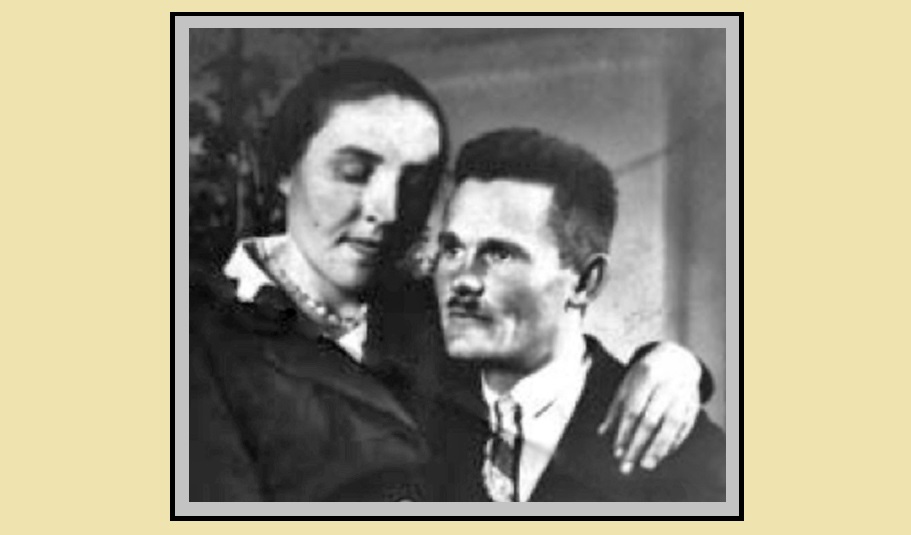
Wiktoria and Józef Ulma, wikimedia (public domain)
First, the document is handled by a commission of historians. If it gives a positive opinion, the positio will go to the theological commission. “They, in turn, will investigate whether in the case of the Ulma family we are dealing with three characteristic elements of martyrdom. How the Servants of God died, what led the Ulma family, to take Jews under its roof in 1942, and what led the German gendarmes, to invaded the Ulma farm on March 24, 1944 “- explains Rev. Dr. Burda.
The final commission consists of bishops and cardinals who summarize the work. If the positio is positive, it goes to the Holy Father and the Cardinal-Prefect of the Congregation asks for a decree of martyrdom. The proclamation of the heroic virtues of a candidate for altars means that he is awarded the title of Venerable Servant of God.
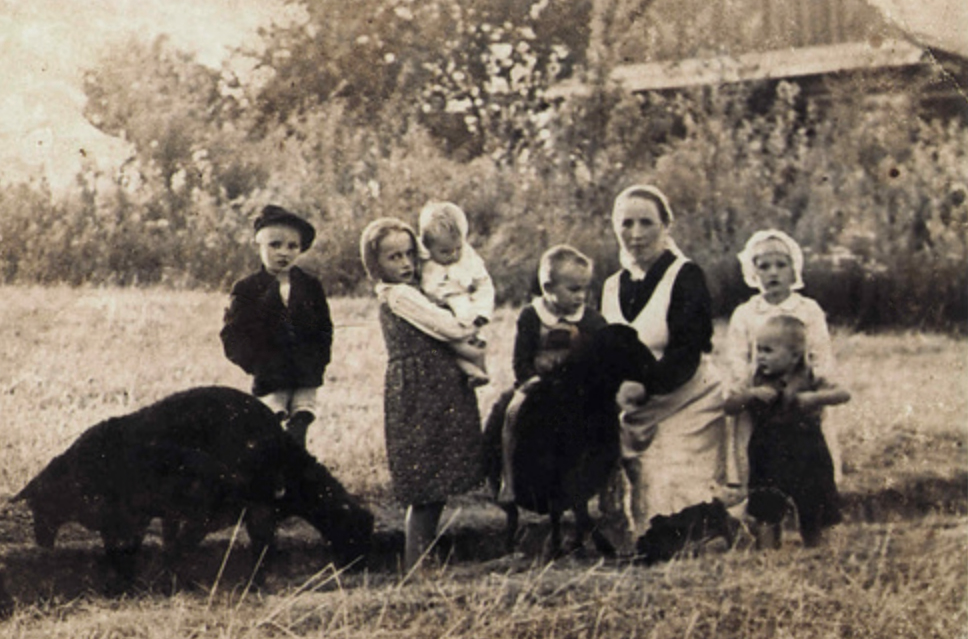
Wiktoria Ulma with children, Wikimedia (public domain)
The trial of the Servants of God from Markowa was separated from the collective beatification process of Polish martyrs of World War II. Fr. Dr. Witold Burda reveals that the commission of historians has already met and from the preliminary talks it seems that its assessment of the positio of the Ulma family will be positive.
Dr. Mateusz Szpytma, vice-president of the Institute of National Remembrance, is pleased with such development of the beatification process. As he emphasizes, the matter of the Ulma family is particularly close to him, because Wiktoria Ulma was his grandmother’s sister and also godmother to his already dead father. Dr. Mateusz Szpytma himself has been conducting research on Poles who saved Jews for many years, especially in his native Podkarpacie region. He was also a co-founder and director of the Ulma Family Museum in Markowa, opened in 2016.
As far as I know (...) the documentation is currently in the hands of the first of the three Vatican commissions, so it is already at a very good stage. We are waiting for this decision. Such a milestone in this process was the preparation of the positio - said the vice president of the Institute of National Remembrance.
Fr. Dr. Witold Burda emphasizes that the uniqueness of the Ulma family’s beatification process lies in the fact that the candidates for the altars – apart from parents – are also all children. Six living, aged 8 to 1.5 years – Stanisław, Barbara, Władysław, Franciszek, Antoni and Maria, as well as the unborn, that Wiktoria Ulma carried in her womb. Fr. Dr. Witold Burda said that one of the witnesses of the exhumation testified that the baby’s head and breast were sticking out of the womb of the murdered Wiktoria. “The thrilling thing is that you can see here every human being’s deep desire to enjoy life, to come into the world. The Congregation included this unborn, nameless and unbaptized child in the process”- added the postulator of the beatification process.
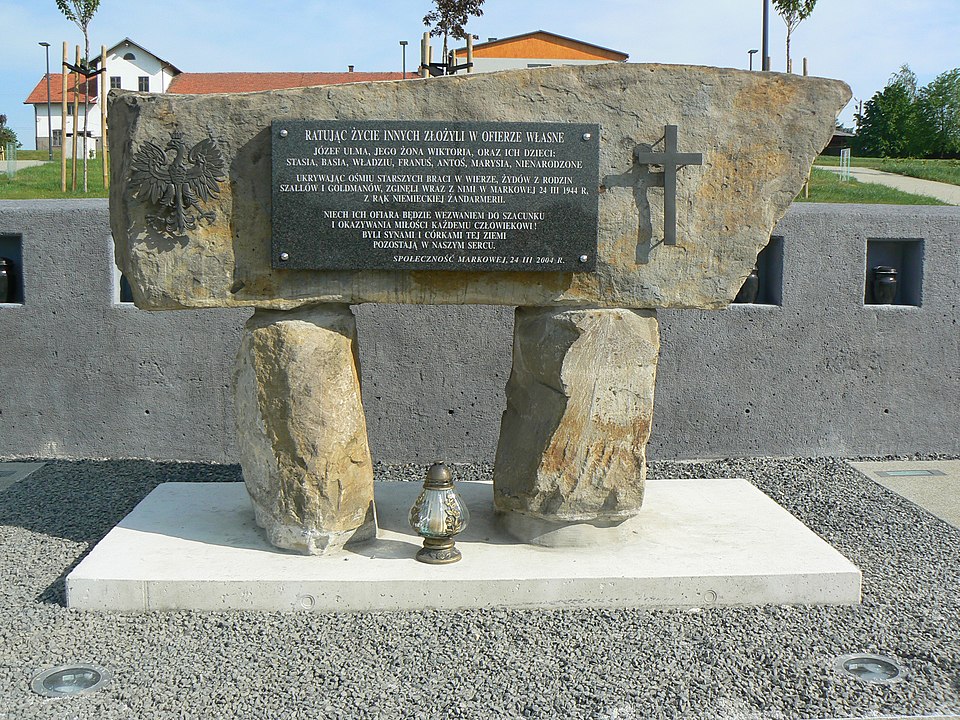
Monument in Markowa dedicated to the victims of the crime (2018), by Jarosław Góralczyk – Own work, CC BY-SA 4.0, https://commons.wikimedia.org/w/index.php?curid=68826941
Josef Kokott distinguished himself with cruelty during the execution. He shot three or four children himself. The gendarme was the only convicted perpetrator of the crime in Markowa. In 1957, he was arrested in Czechoslovakia and then extradited to Poland. Initially sentenced to death, the communist Council of State eventually changed the sentence to life imprisonment and ultimately 25 years in prison. Kokkot died in prison in 1980. The commander of the punitive expedition, Lieutenant Eilert Dieken, worked as a policeman in Esens, West Germany, after the war. The investigation of the German prosecutor’s office was archived in the 1970s.
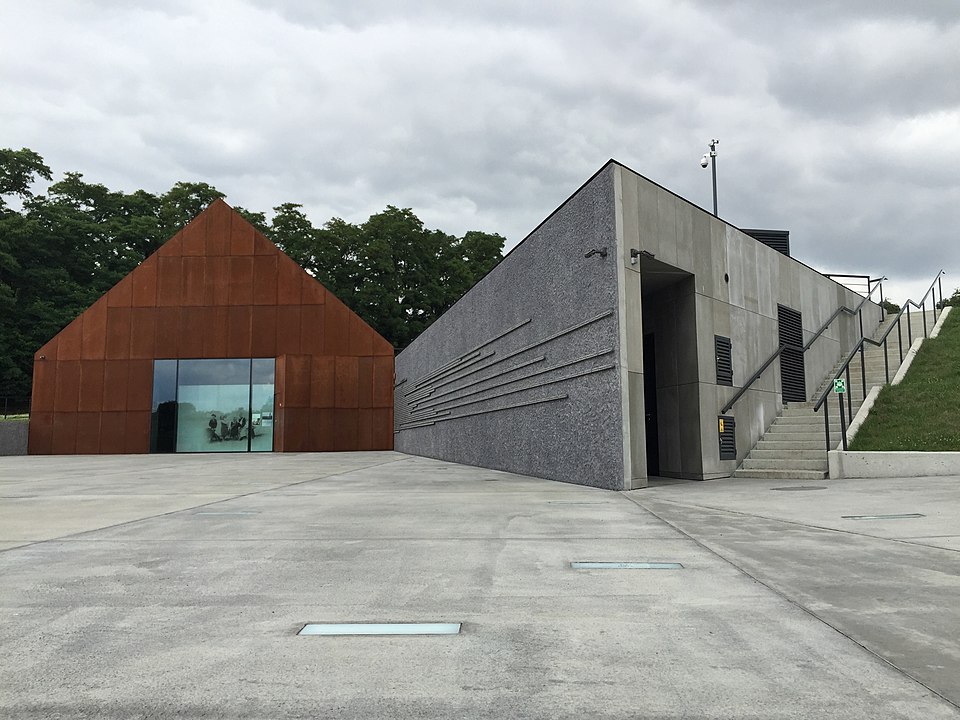
Museum of Poles Saving Jews in World War II The Ulma Family in Markowa, by Zuzanna Stadnik – Own work, CC BY 3.0, https://commons.wikimedia.org/w/index.php?curid=50960181
On the other hand – as Fr. Dr. Burda stressed – we have a “testimony to the great responsibility” of Józef and Wiktoria Ulma for their lives and their relatives’ lives. The postulator of the beatification process pointed out that in the accounts of the witnesses, the Ulma house, despite its modest conditions, is described as full of warmth, cordial, Christian atmosphere. “I am deeply convinced that the decision to accept eight Jews under my roof, with the awareness of the threatening, fatal consequences, was a joint decision of Józef and Victoria” – said the priest of the Przemyśl Archdiocese, recalling Joseph’s words about the hidden Jews: “these are also people, I can not kick them out of the house”.
Fr. Witold Burda added that the foreigners with whom he maintains contact also draw attention to the uniqueness of the Ulma family’s history. For example, a group of lay people from Padua, Italy, is organizing a conference on the Ulma family on May 30, and parishes from the United States and the Philippines are asking for pictures with prayers for the beatification of the Servants of God from Markowa.
***
“A Samaritan traveler who came upon him was moved with compassion at the sight. He approached the victim, poured oil and wine over his wounds and bandaged them. Then he lifted him up on his own animal, took him to an inn and cared for him”- this fragment of the Gospel according to St. Luke was underlined in the Holy Scriptures of Józef and Wiktoria Ulma. They translated the Gospel directly into their lives, putting the good of their Jewish neighbors above their own.



Dodaj komentarz